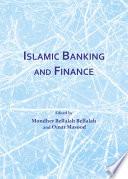
Risk Management Implementation and Solutions for Islamic Banking and Finance
Islamic finance is a growing part of the global financial sector. The risks faced by Islamic banks are real, and how well they mitigate them will determine their future. This book answers questions regarding how Islamic Financial Institutions should focus on their risk management practices and the necessary solutions and policy implementation tactics. It also analyses the risk mitigation techniques Islamic institutions are putting to use, looking at different Islamic banks from across the world to investigate their strategies and solutions. Among the topics discussed here are the implementation and outcomes of Basel III, practical enterprise risk management practices, liquidity risk management, and the success story of the global takaful industry.
- ISBN 13 : 1527526356
- ISBN 10 : 9781527526358
- Judul : Risk Management Implementation and Solutions for Islamic Banking and Finance
- Pengarang : Kiran Javaria, Omar Masood, Omar Masood, Omar Masood, Omar Masood, Omar Masood, Omar Masood, Omar Masood, Omar Masood, Omar Masood, Omar Masood, Omar Masood, Omar Masood, Omar Masood, Omar Masood,
- Kategori : Reference
- Penerbit : Cambridge Scholars Publishing
- Bahasa : en
- Tahun : 2019
- Halaman : 105
- Google Book : https://play.google.com/store/books/details?id=CHSFDwAAQBAJ&source=gbs_api
-
Ketersediaan :
This book answers questions regarding how Islamic Financial Institutions should focus on their risk management practices and the necessary solutions and policy implementation tactics.

